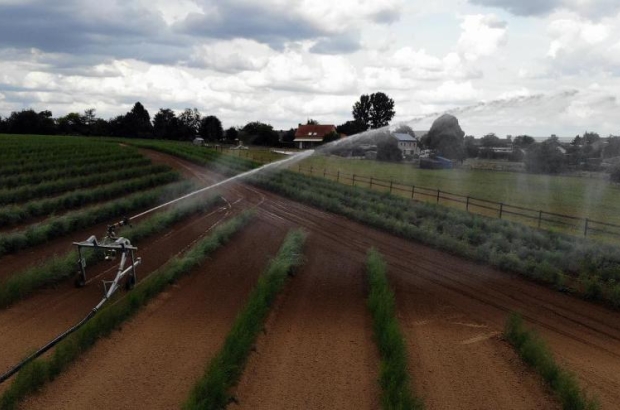- Daily & Weekly newsletters
- Buy & download The Bulletin
- Comment on our articles
Belgium to implement additional measures this summer to combat effects of drought and torrential rain
Belgium – a country that struggles with both excessive rainfall and water scarcity – is looking to implement extra preventative measures ahead of the summer.
In Flanders, minister for the environment Zuhal Demir (N-VA) is asking the Flemish Environment Agency to take a closer look at existing rules and regulations, while a new mandatory storage capacity of 8,000 to 10,000 litres for new buildings is also on the table.
“The worst measure against drought is only waking up when it is dry and there is no more water coming out of the tap,” Demir said, stressing the importance of continued investment into the Flemish Blue Deal.
“With the Blue Deal, we are making Flanders proactively and structurally resilient to climate change. Friends and foes, but also many experts confirm that this is the way forward. But it is a long haul.”
Recent figures from the Flemish Environment Agency show that the past dry weeks have had a significant impact on groundwater levels in the region: in April only 51% of the measuring locations counted low to very low groundwater levels for the time of year, but in May that number rose to 67%.
Nevertheless, the number is comparable to 2020 levels, and not necessarily cause for immediate alarm.
“We are better prepared than two years ago,” Demir stressed, explaining that water companies have plans for security of supply and guarantee they can bridge a longer period of drought with a certainty they didn’t have in previous years.
Spring 2022 already historically dry
For the rest of Belgium, a historically dry spring saw three times less rainfall than normal and for 90% of the country, the forecast will remain “extremely dry” over the next 10 days.
East of the country (Hautes Fagnes and Eastern cantons) and the far south (Gaume and southern Luxembourg) are the only parts of the country likely to be somewhat spared.
“We are indeed in a configuration of extreme drought for what we call the meteorological spring, which runs from 1 March to 31 May,” Pascal Mormal, climatologist at the Royal Meteorological Institute, told RTBF.
“The seasonal norms are 121.2 litres/m², and we are at 40.2 litres. That's a third of what we should have.”
The last spring to be this dry was in 1893: “There we were at 37.6l/m². Even during the famous drought of 1976, we averaged 69 litres for the whole three months. But as we are at 40.2 at the moment and we don't really foresee any major rainy periods in the future, it's not out of the question that we could still be below this level.”
Thunderstorms on horizon
Forecast thunderstorms next week could bring some relief to farmers, Mormal said, “but the problem with thunderstorms is that they are often very localised, and therefore do not affect the whole country. Moreover, they are not what we call ‘good rain’, because they are too intense and fall on dry soil, so the water runs off instead of penetrating the soil.”
He warned that the country as a whole was headed for “extremely dry weather. We are returning to what happened from 2017 to 2020.”
Hydrologist Patrick Willems (KU Leuven) also warned of increasing drought a few weeks ago, reports De Standaard. Due to the increasing drought alternating with heavy downpours, the rules for collecting rainwater are no longer sufficient, which is why regions are exploring new measures.
New water-saving regulations on way in Flanders
In Flanders, they’re looking to modify the entire set of regulations, including those concerning the infiltration of water and buffers.
The chemical and pharmaceutical sectors also recently committed themselves to making additional efforts in water saving and circular water use, and all Flemish provinces have already announced a partial ban on pumping water from rivers or canals.
But according to Aqua Flanders, the umbrella organisation of water and sewage companies in Flanders, the drinking water supply is not in danger.
“The water companies have taken the necessary measures to guarantee the supply of drinking water even in difficult circumstances. There is constant consultation with the government to closely monitor the situation,” said general manager Carl Heyrman.
Photo: © Belga/Eric Lalmand

















